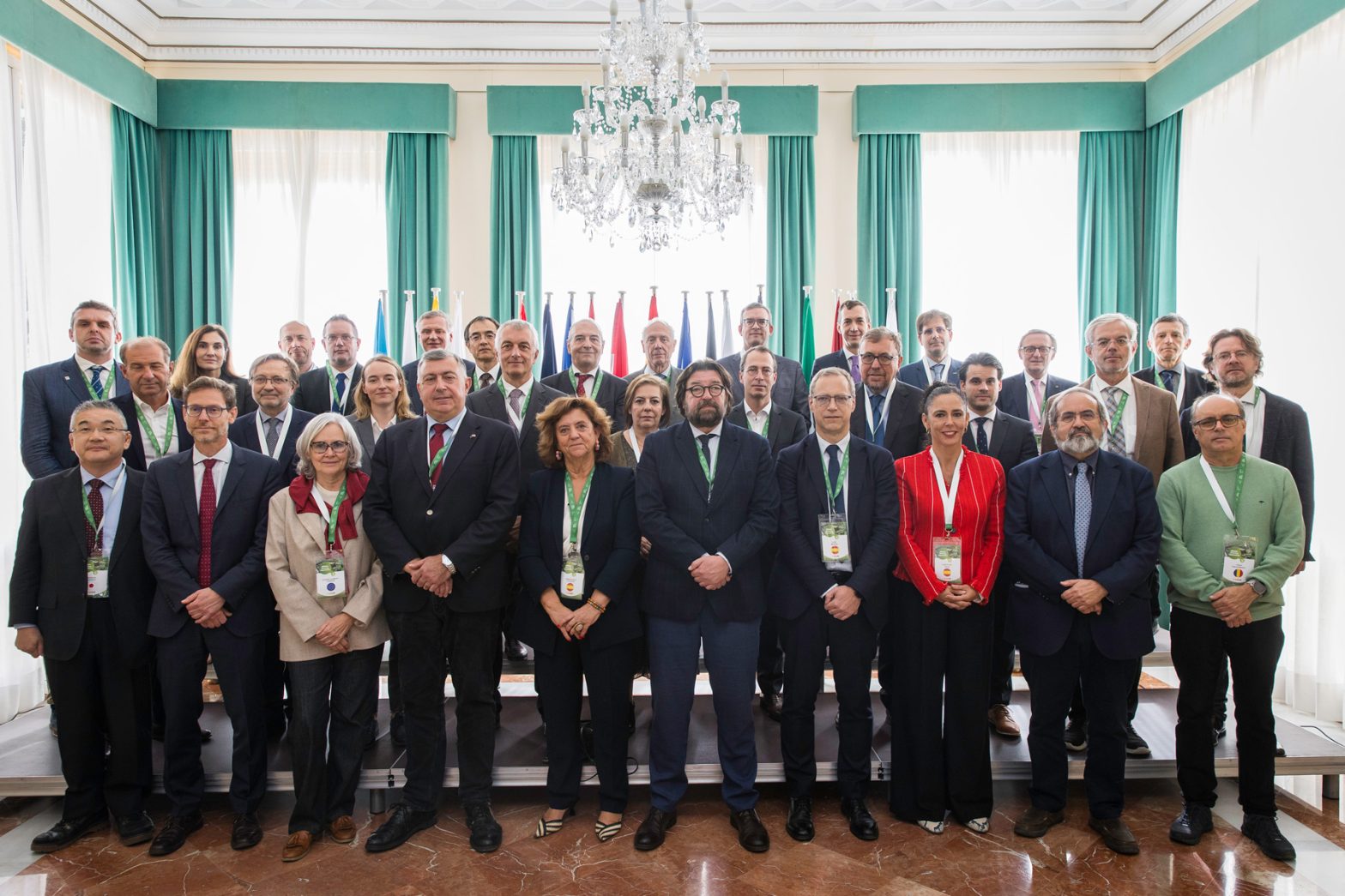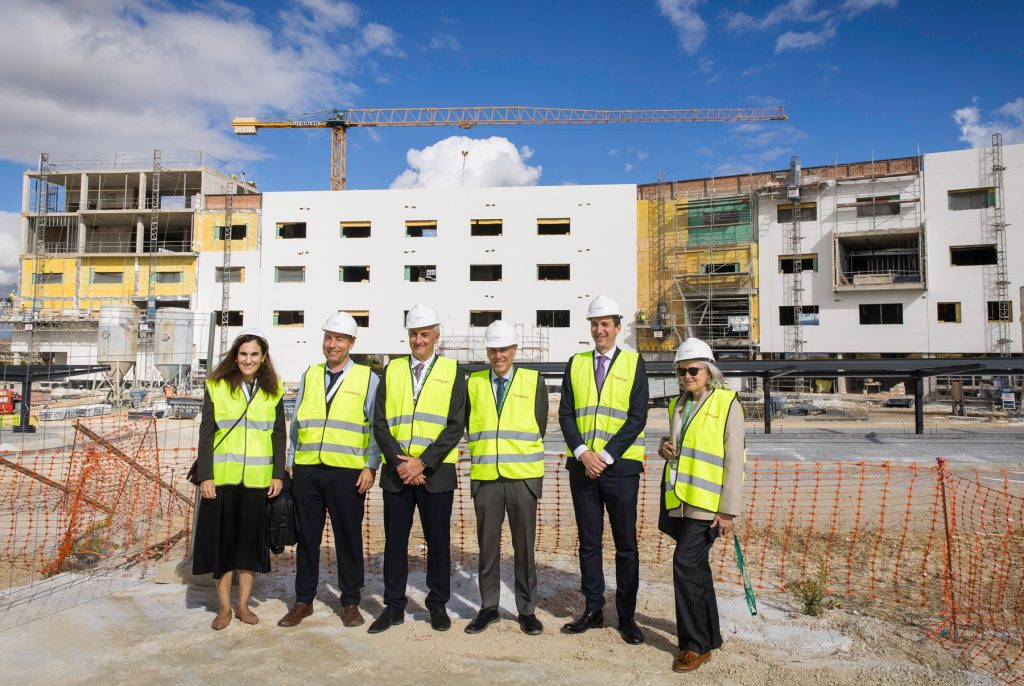IFMIF-DONES partnership progresses with talks on governance and contributions

Group picture during the Steering Committee meeting, with representatives of the DONES international parties, including F4E. @IFMIF-DONES España
During the fourth Steering Committee of DONES, held in Granada (Spain), talks among partners and interested parties focused on the governance and contributions to the Programme. Fusion for Energy (F4E) is actively engaged in the groundwork of the future fusion research facility.
IFMIF-DONES stands for International Fusion Materials Irradiation Facility – Demo Oriented Neutron Source. This infrastructure, under construction in Escúzar (Granada), is considered a strategic knowledge source for the future construction of fusion power plants. Thanks to a particle accelerator and other cutting-edge systems, it will allow scientists to test and qualify materials that can withstand the extreme conditions in a fusion reactor.
At the meeting, the delegates agreed on the next steps for the programme. The work programme for 2025 foresees the establishment of DONES’ intellectual property policy and the launch of the first Procurement Arrangements. Spain and Croatia committed to covering up to 55% and 5% of the costs, respectively. Italy, Japan, and Germany have also expressed interest. Once the larger contributions are confirmed, then the EU could make available 200 million EUR (~25%) via F4E, following the approval of its Governing Board.
In fact, F4E is already deeply involved in the Programme, with five members of staff based in Granada to help steer the ramp-up, and another ten based in Barcelona and Garching, partly contributing to its activities. One of them is Philippe Cara, appointed as Programme Manager for DONES. “We are building a solid international project that will help us deliver new knowledge to the fusion community,” he expressed.
Since September, Cara and his colleagues are working in the UGR-DONES building. Next year they will move across the street, to the Administration building, currently under construction and designed to host over 250 employees. The erection of the IFMIF-DONES facility, hosting the accelerator and main systems, will start in 2026. The Steering Committee meeting concluded with a visit to the site, where delegates got a first-hand glance of the progress.

The share provided by F4E could include a significant number of accelerator components, key to creating the neutrons that will hit material specimens. This system will be a direct successor of the LIPAc prototype, developed by Europe and Japan as part of the Broader Approach agreement. “LIPAc is validating the technologies for IFMIF-DONES, providing us with crucial physics and engineering expertise,” explains Philippe Cara. Both teams are reinforcing technical coordination and will soon start a series of meetings to share lessons learned.